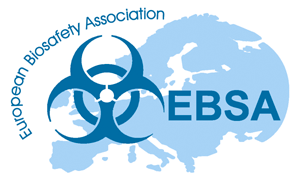About Gene Drives: Technologies, applications & biosafety challenges
EBSA course
Gene Drives: Technologies, applications & biosafety challenges
Gene drives allow for a trait to be transmitted to subsequent generations in a ratio that deviates from the laws of Mendelian inheritance. Active in sexually-reproducing species, they are powerful tools to “drive” a gene, i.e. increase its frequency, independent of external selection pressure. They have been proposed as offering solutions for challenges in public health, agriculture, conservation and others.
While attempts have been made to use or modify naturally occurring gene drive mechanisms, advances in genetics and in particular the development of synthetic (or engineered) gene drive systems opened up new and powerful possibilities. At the same time, concerns on safety, on the potential negative impact on the environment and biodiversity as well as on ethical and societal aspects have been raised.
After an introduction on the broad range of gene drive systems, this course will focus on the rapid progress that is achieved with the nuclease-based gene drive systems. Concepts such as low & high thresholds drives, suppression & replacement drives will be introduced as well as mechanisms that are designed as additional safeguards (e.g. daisy drives). The scientific achievements will be linked with examples and applications. Given the far reaching impact of the applications, societal and ethical considerations, and how these can be approached in public involvement, will be highlighted. Finally, after an outline on the elements which must be taken into account when performing an environmental risk assessment, we will evaluate those safety aspects which are of specific importance for gene drives.
Topics
- What is CRISPR/CAS
- Competing (abandoned) techniques
- Speed of development and future devellopments
- What are gene drives
- Safety issues risk assessment of gene drives
- Applications of gene drives with some examples
- Ethics general
- Ethical questions and dilemmas
- Publc perception and acceptation
Learning outcomes
The course participants will be able to
- Define what gene drives are and be able to distinguish between different types
- Understand the basic process of an environmental risk assessment of a GMO
- Evaluate the relevance of specific risk considerations for gene drives
- Appreciate the basis for societal and ethical considerations and develop
CWA reference
- C2.1.1.2 General Principles of Molecular biology and genetic engineering
- C.2.1.2.6 General principles of environmental safety
- C 2.1.3.3 Bioethics
